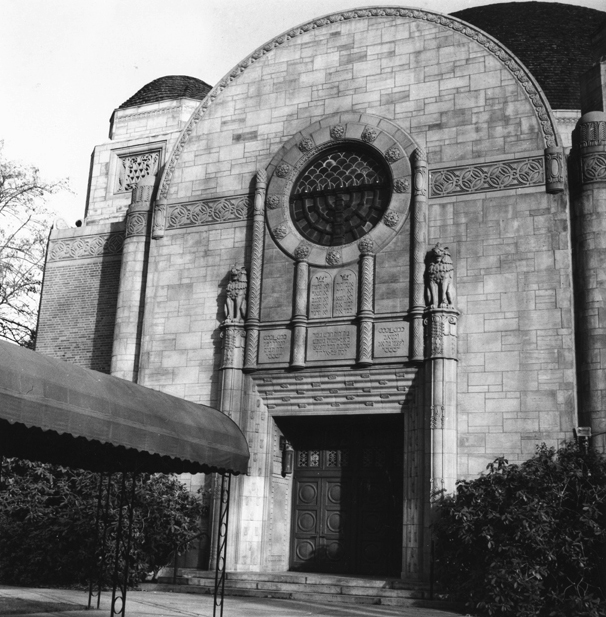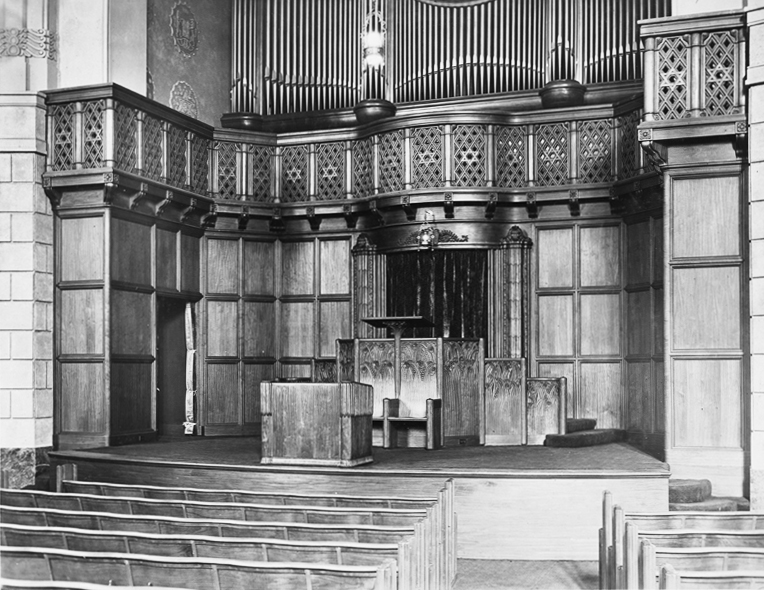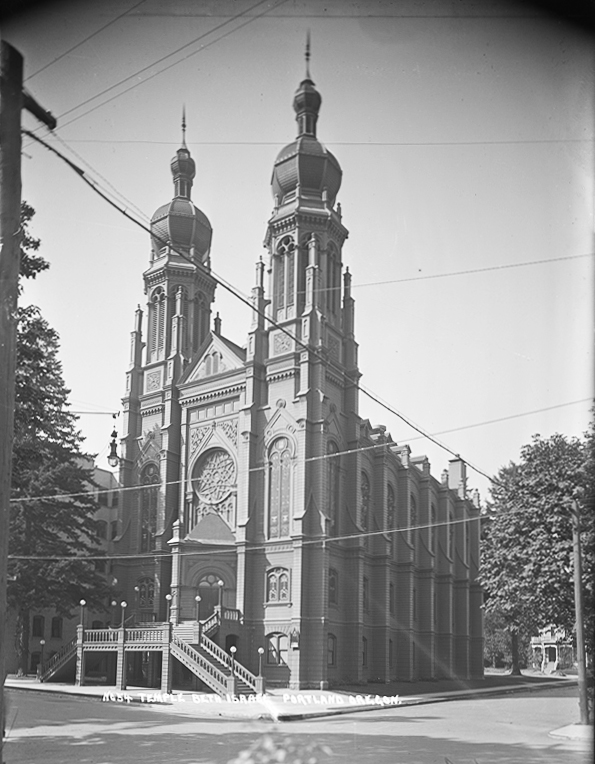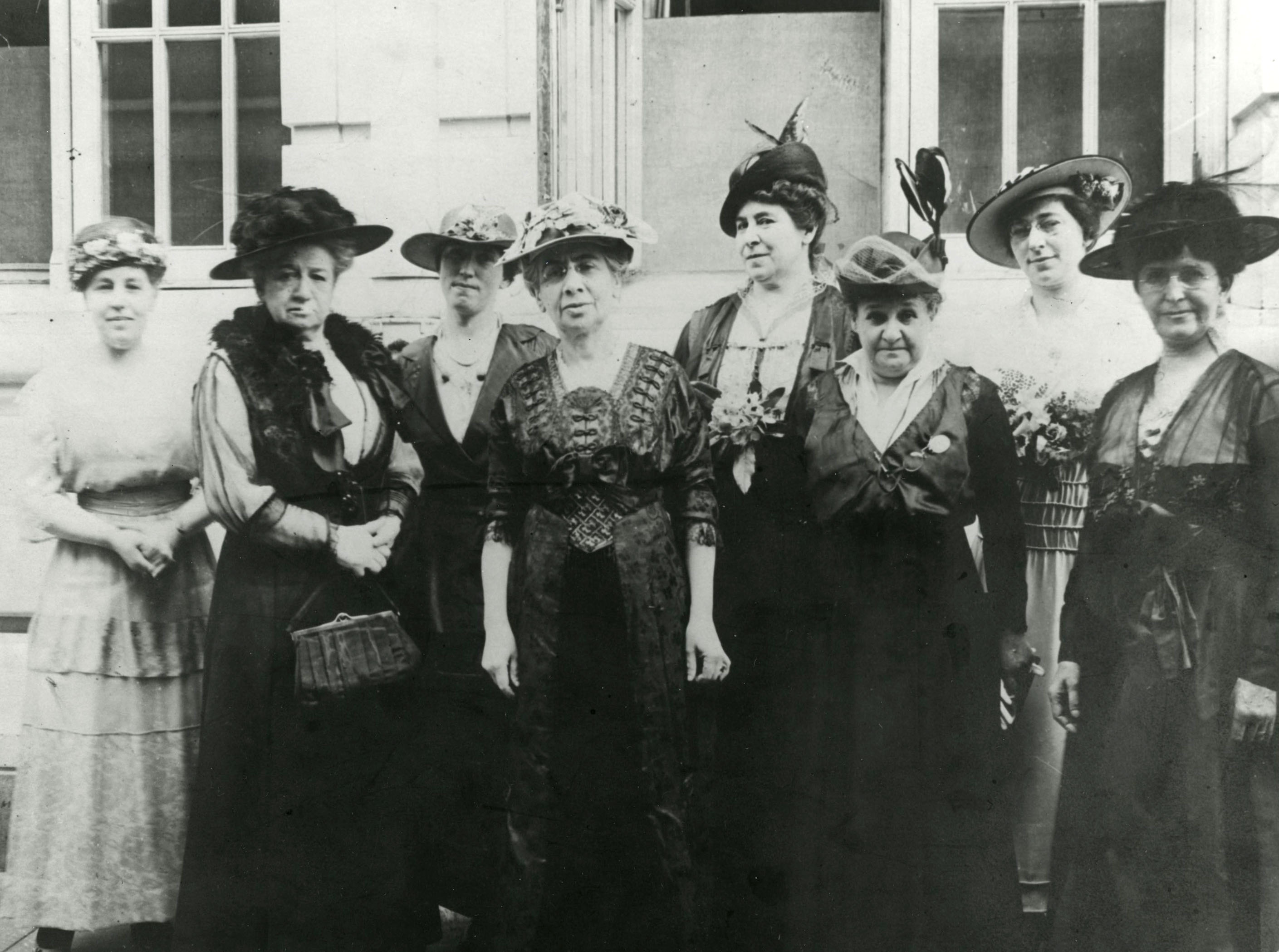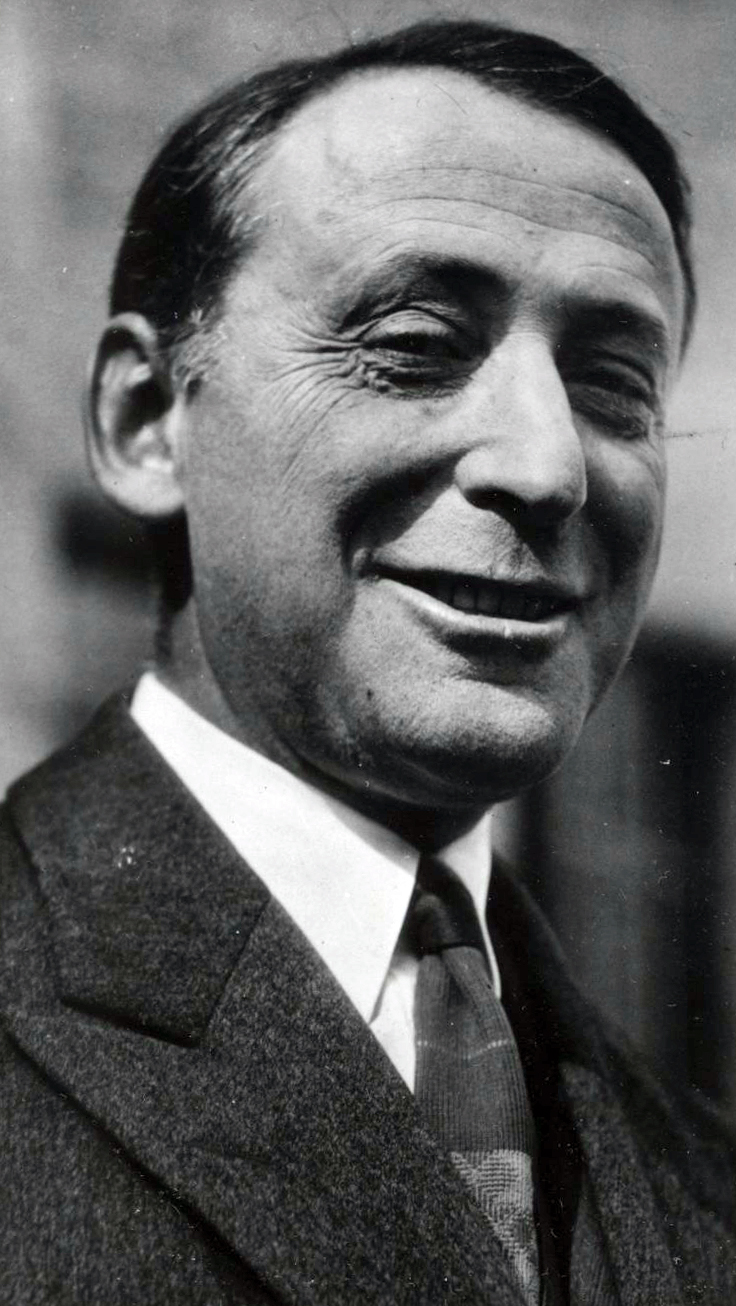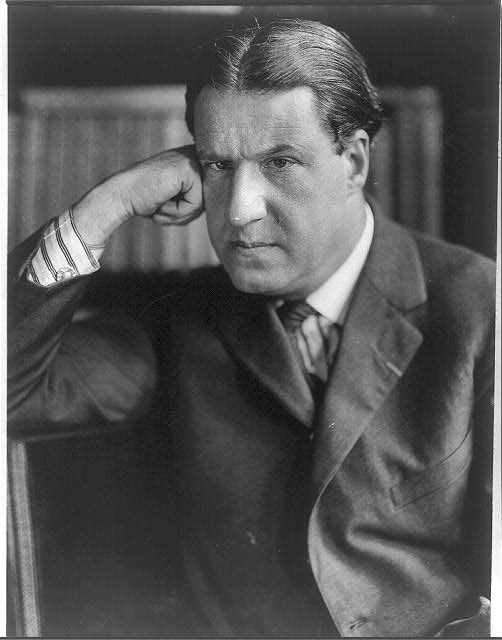Congregation Beth Israel (CBI) is the oldest and most prominent Jewish Reform congregation in Oregon. Temple Beth Israel, the congregation's home on Northwest Flanders Street in Portland, is an impressive, Byzantine-inspired building that is on the National Register of Historic Places.
The congregation had its beginning at a meeting of eight people in May 1858; twenty-one people became original members the following month. The small congregation held weekly services in Burke’s Hall, a noisy and unadorned loft above a blacksmith shop and a livery stable at First and Morrison. In 1859, the year that Oregon became a state, the congregation decided to build its first synagogue. Opened in 1861 at Fifth and Oak, the Gothic-style building could seat 200 people. It drew praise from both the Oregonian and the “ladies and gentlemen of nearly all denominations” who attended the consecration.
The early years were not without controversy. The congregation had difficulty finding a rabbi willing to work in faraway Oregon for just $1,000 a year, and members did not agree on how traditional the congregation should be. Some wanted to keep the rituals of their parents; others wanted to adopt new Reform practices popular with some early congregations in America. Although CBI officially joined the Reform movement in 1879, that decision was not fully accepted by the membership until the turn of the twentieth century. In the intervening years, some members left to start or affiliate with other congregations in Portland, and some rabbinical leaders moved on.
Despite the controversies, CBI grew. “Over the years," historian E. Kimbark MacColl wrote, "Beth Israel was identified with . . . reform Judaism, with a congregation that represented the upper crust of Jewish society in Portland.” By 1887, CBI saw the need to expand and two years later moved into a new synagogue at Twelfth and Southwest Main.
The 165-foot copper and gilt towers of the new synagogue became Portland landmarks. The sanctuary could seat 750 people and was the largest religious space in the city. With an enormous rose window above the organ, long ornamental side windows, and a 52-foot arched ceiling, the sanctuary was filled with light. It was there that Rabbi Stephen S. Wise, later one of the most influential and respected leaders of American Judaism, preached from 1900 to 1906.
On December 29, 1923, an arsonist set fire to the synagogue, destroying it completely and setting the stage for CBI’s biggest undertaking yet: the building of today's Temple Beth Israel. During construction, CBI would meet at the First Presbyterian church.
The new, Byzantine-style synagogue, at Northwest 19th and Flanders streets, was dedicated in April 1928. Its soaring, hundred-foot dome, with a Star of David oculus, was inspired by the Steelerstrasse Synagogue in Essen, Germany. With 18 stained-glass windows, a 4,500-pipe Reuters organ, a circular menorah window, and an elaborate sanctuary seating 1,000 people, Temple Beth Israel is one of the most notable buildings in Oregon. The adjacent Sherman Education Center and the Schnitzer Family Center provide classroom, office, and meeting space.
Eighteen rabbis have led CBI since 1858. Rabbi Emanuel Rose, a strong advocate for social justice, had the longest tenure, serving from 1960 to 2006. Rabbi Michael Cahana was named senior rabbi in 2006. In 2009, CBI had about 1,000 memberships, representing approximately 3,000 individuals.
-
![Temple Beth Israel, Nov. 1972.]()
Beth Israel, temple, exterior, 1972, bb008635.
Temple Beth Israel, Nov. 1972. Oreg. Hist. Soc. Research Libr., bb008635
-
![Interior of Temple Beth Israel, 1972.]()
Beth Israel, temple, interior, 1972, bb008623.
Interior of Temple Beth Israel, 1972. Oreg. Hist. Soc. Research Libr., bb008623
-
![1888 Beth Israel synagogue at SW 12th & Main St., Portland, burned 1923.]()
Beth Israel synagogue, 1888 bldg, exterior, bb008629.
1888 Beth Israel synagogue at SW 12th & Main St., Portland, burned 1923. Oreg. Hist. Soc. Research Libr., bb008629
Related Entries
-
![Jews in Oregon]()
Jews in Oregon
Jewish Pioneers: Becoming Oregonians In 1869, Bernard Goldsmith, an i…
-
![Jonah B. Wise (1881-1959)]()
Jonah B. Wise (1881-1959)
Rabbi Jonah B. Wise led Congregation Beth Israel, Portland’s oldest and…
-
![Stephen S. Wise (1874-1949)]()
Stephen S. Wise (1874-1949)
Rabbi Stephen S. Wise, one of the most significant American Jewish lead…
Related Historical Records
Map This on the Oregon History WayFinder
The Oregon History Wayfinder is an interactive map that identifies significant places, people, and events in Oregon history.
Further Reading
Lowenstein, Steven. The Jews of Oregon. Portland: Jewish Historical Society of Oregon, 1987.
Temple Beth Israel. Temple Beth Israel: A Temple for the Ages. Portland: Temple Beth Israel, 2002.

